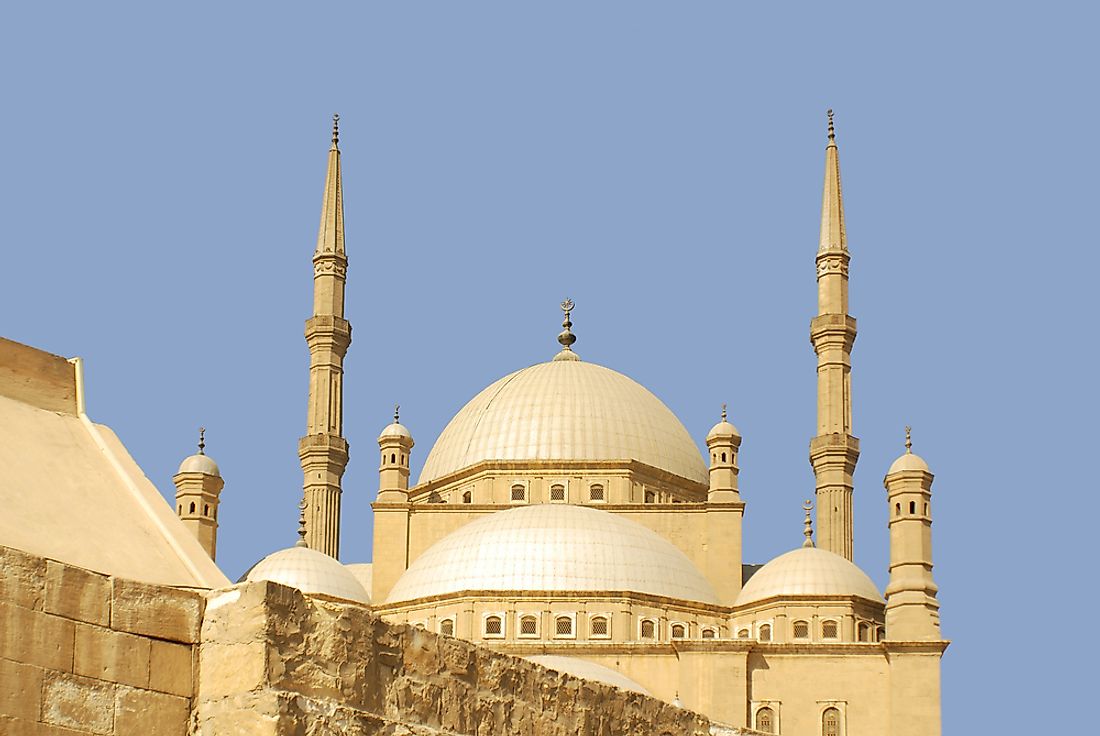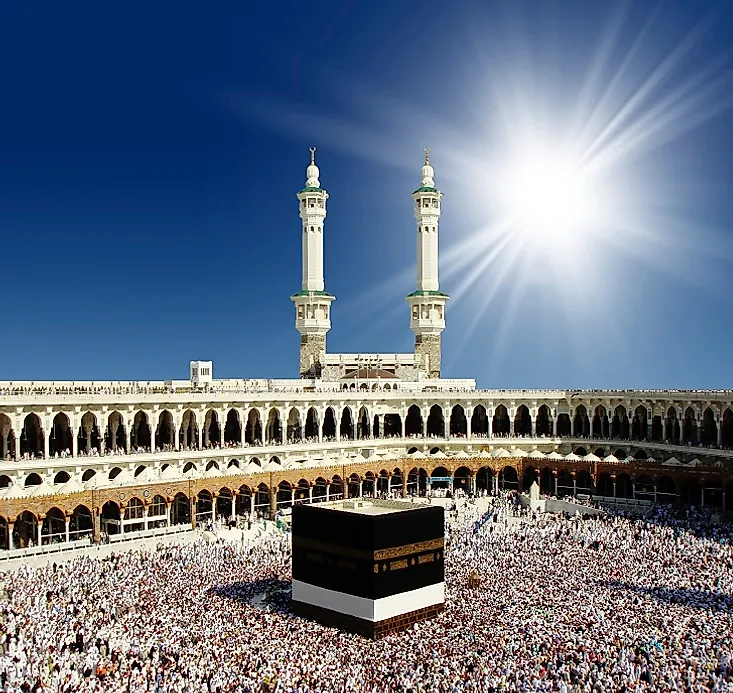Islam, one of the world's major religions, is followed by over 1.9 billion people globally, making it the second-largest religion in the world. It is a faith that emphasizes peace, submission to God (Allah), and the importance of community. For many, understanding the core principles and teachings of Islam can provide valuable insights into its role in shaping cultures and societies worldwide.
This article aims to explore the Islamic religion in detail, offering a clear and accessible overview for those who wish to deepen their knowledge. From its foundational beliefs to its impact on daily life, we will delve into the rich tapestry of Islamic traditions and practices.
Whether you are a student, researcher, or simply someone curious about the Muslim faith, this guide will provide a well-rounded perspective on the religion's history, principles, and global influence. Let's embark on this journey of discovery together.
Read also:Unveiling The Extraordinary Life Of Jeanie Gontier
Table of Contents
- The History of Islam
- Core Beliefs of the Muslim Religion
- Islamic Practices and Rituals
- The Quran and Other Islamic Scriptures
- The Role of Prophet Muhammad
- Branches of Islam
- Islamic Culture and Traditions
- Women in Islam
- Common Misconceptions About Islam
- Conclusion
The History of Islam
The Origins of Islam
The history of Islam dates back to the early 7th century in Mecca, a city located in present-day Saudi Arabia. It began with the revelations received by Prophet Muhammad, who is considered the last prophet in Islam. These revelations were later compiled into the holy book of Muslims, the Quran.
The spread of Islam was rapid and significant. Within a century of its founding, it had expanded across the Arabian Peninsula, North Africa, and parts of Europe and Asia. Today, Islam continues to be one of the fastest-growing religions in the world.
Key Events in Islamic History
Several key events shaped the early history of Islam:
- Hijrah: The migration of Prophet Muhammad from Mecca to Medina in 622 CE, marking the start of the Islamic calendar.
- The Conquest of Mecca: In 630 CE, Muhammad returned to Mecca and successfully retook the city, establishing Islam as the dominant religion in the region.
- The Rashidun Caliphate: The first four caliphs who succeeded Muhammad played a crucial role in expanding the Islamic empire.
Core Beliefs of the Muslim Religion
The Five Pillars of Islam
The foundation of Islamic faith is built on the Five Pillars, which are essential practices for Muslims:
- Shahada: The declaration of faith in the oneness of Allah and the prophethood of Muhammad.
- Salah: Performing five daily prayers.
- Zakat: Giving alms to the poor and needy.
- Sawm: Fasting during the month of Ramadan.
- Hajj: Pilgrimage to Mecca, which is obligatory for those who are physically and financially able.
Belief in One God
Central to Islam is the belief in Tawhid, the oneness of God. Muslims believe that Allah is the sole creator and sustainer of the universe, and worshiping Him alone is the cornerstone of their faith.
Islamic Practices and Rituals
Prayer (Salah)
Muslims perform five daily prayers at specific times: Fajr (dawn), Dhuhr (noon), Asr (afternoon), Maghrib (sunset), and Isha (night). These prayers are acts of worship that connect individuals with Allah and reinforce their faith.
Read also:Danielle Brooks And Andrew Santino Exploring Their Lives Careers And Impact
Fasting During Ramadan
Ramadan is a holy month in Islam where Muslims fast from dawn to sunset. This practice encourages self-discipline, empathy for the less fortunate, and spiritual reflection.
The Quran and Other Islamic Scriptures
The Quran
The Quran is the central religious text of Islam, believed by Muslims to be the word of God revealed to Prophet Muhammad. It contains 114 chapters (surahs) and serves as a guide for all aspects of life, including ethics, law, and spirituality.
Hadith and Sunnah
Besides the Quran, Muslims also refer to Hadith, which are the sayings and actions of Prophet Muhammad, and Sunnah, his way of life. These texts provide additional guidance on how Muslims should conduct themselves.
The Role of Prophet Muhammad
Biography of Prophet Muhammad
Prophet Muhammad was born in 570 CE in Mecca. He is considered the final prophet in the Islamic tradition and is revered for his teachings and leadership. Below is a brief overview of his life:
| Full Name | Muhammad bin Abdullah |
|---|---|
| Birthplace | Mecca, Saudi Arabia |
| Prophethood | At the age of 40, he received his first revelation from Angel Gabriel. |
| Death | 632 CE in Medina |
Significance of Prophet Muhammad
Prophet Muhammad is seen as the perfect example of how Muslims should live their lives. His teachings emphasize justice, kindness, and compassion, and his legacy continues to inspire millions worldwide.
Branches of Islam
Sunni and Shia Islam
Islam is primarily divided into two major branches: Sunni and Shia. The division arose after the death of Prophet Muhammad regarding the rightful successor to lead the Muslim community.
- Sunni Islam: Represents the majority of Muslims and follows the traditions of the early caliphs.
- Shia Islam: Believes in the leadership of Ali, the cousin and son-in-law of Muhammad, and his descendants.
Sufism
Sufism is a mystical dimension of Islam that focuses on achieving a deeper connection with Allah through spiritual practices such as meditation and remembrance of God.
Islamic Culture and Traditions
Islamic Art and Architecture
Islamic art and architecture are renowned for their intricate designs and geometric patterns. Mosques, such as the Al-Aqsa Mosque in Jerusalem and the Blue Mosque in Istanbul, showcase the beauty and grandeur of Islamic architecture.
Islamic Festivals
Muslims celebrate several festivals throughout the year, including:
- Eid al-Fitr: Marks the end of Ramadan and is a time of joy and feasting.
- Eid al-Adha: Commemorates the willingness of Ibrahim (Abraham) to sacrifice his son as an act of obedience to God.
Women in Islam
Rights and Roles
Islam grants women several rights, including the right to education, property ownership, and participation in social and political life. However, cultural practices in some regions have sometimes led to misunderstandings about the status of women in Islam.
Modesty and Hijab
The concept of modesty in Islam extends to both men and women. For women, wearing the hijab is often seen as a symbol of faith and dignity, although interpretations vary across cultures.
Common Misconceptions About Islam
Violence and Extremism
One of the most common misconceptions is that Islam promotes violence. In reality, the vast majority of Muslims reject extremism and advocate for peace and coexistence with people of all faiths.
Jihad
Jihad is often misunderstood as a call to violence. However, its primary meaning in Islam is the struggle to lead a virtuous life and uphold one's faith.
Conclusion
In conclusion, Islam is a rich and diverse religion that offers profound insights into spirituality, ethics, and community. By understanding its core beliefs, practices, and cultural contributions, we can foster greater appreciation and respect for the Muslim faith.
We encourage you to share this article with others and continue exploring the fascinating world of Islam. Your feedback and questions are always welcome, so feel free to leave a comment below or explore more articles on our website.
Remember, knowledge is the key to bridging gaps and promoting harmony among diverse communities. Let us embrace the opportunity to learn and grow together.


